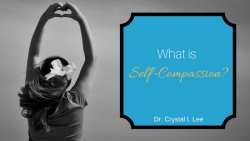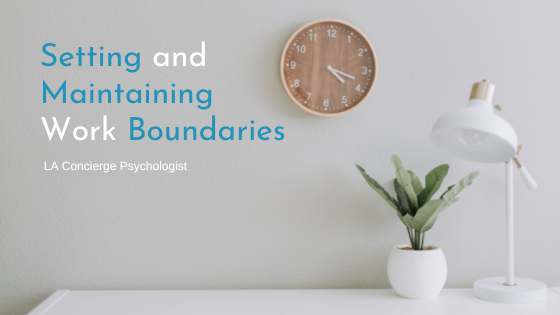We’ve all been there. We made a mistake at work, we were unkind to our partner, or we were late to an important recital for our child… and then starts the outpour of self-criticism.
“What a stupid mistake! No one else here ever makes mistakes like that.”
“Why would I say such a thing?! I’m such a jerk.”
“I’ve disappointed my daughter, again. What kind of crappy father am I?”
Imagine if we treated our loved ones that way. They come to us feeling badly about what happened, and we basically add fuel to the fire. That’s not helpful, right? More so, it’s hurtful. So why are we okay with doing this to ourselves constantly, without a second thought?
I’ve asked clients this question many times, and usually they explain that, if they aren’t harsh with themselves, they won’t learn to do better next time. I counter, if you beat yourself up for every little thing you do “wrong”, then a few things will happen:
- You’ll start feeling really down on yourself in general.
- You’ll start feeling anxious because you’re constantly trying to avoid making a mistake.
- Eventually, you might even stop taking any risks and become stuck because it’s too hard to deal with the constant self-criticism. How do you learn then?
Instead, I challenge my clients to try reacting with self-compassion instead of self-criticism. It’s hard to let go of self-criticism. As crappy as it makes us feel, it’s been our trusted friend for most of our life, and we mistakenly think it makes us better. Being kind to ourselves is just self-indulgent.
Is it indulgent to care of our loved ones when they’re physically ill or in emotional distress? Of course not. We care for them and are compassionate towards them because they are in pain. Let’s treat ourselves with the same respect and kindness.
When most people hear “self-compassion”, they think “okay, just be nicer to myself.” In fact, self-compassion is made of three balanced components; all three components are needed in order to truly be self-compassion.
1. Self-kindness
This is pretty self-explanatory. When you’re faced with a difficult situation or a mistake you’ve made, react with caring and understanding instead of being critical or judgmental— like how you’d treat a loved one.
2. Belief in a Common Humanity
Sometimes we forget that we are all human beings, and human beings are flawed and imperfect; we all struggle with the same feelings. It’s important to remember this during our tough times or when we make mistakes so we don’t become isolated and alone and, rather, become connected to those around us.
3. Mindfulness
You’ve probably heard of mindfulness before because it’s been popularized in the past 10 years. To be mindful means to be fully present and experience the moment with clarity and balance, instead of being swept away by the feelings or ignoring the feelings. This allows us to live in the moment and without judgment.
So, the next time you make a mistake, remember the three things above, and see how much better life seems to go!
Click here for more information on executive coaching.
Feel like you need some outside support to cultivate self-compassion? Send us a message or book a free 20 minute consultation call with Dr. Barajas or Dr. Goldman to see how we can help you leave self-criticism behind.




